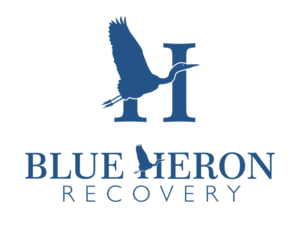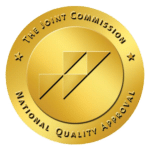Entering a good rehab program is a crucial step on the path to recovery for those struggling with addiction. It’s not just about detox and therapy; it’s also about acquiring a set of skills that can transform lives. Blue Heron Recovery, a renowned rehab center located in the heart of San Antonio, Texas, stands out as a beacon of hope and healing. Here, individuals are empowered with vital skills that not only assist in overcoming addiction but also in building a foundation for a healthier, substance-free life. This blog post explores the essential skills you will learn at a good rehab like Blue Heron Recovery.
Skills That You Will Learn at a Good Rehab
The skills you learn while in rehab will play a critical role in your recovery. These aim to help you maintain your sobriety and live happier and healthier. Some of the skills you can expect to learn include:
1. Emotional Regulation Skills
One of the most significant challenges individuals face in recovery is managing their emotions. Addiction often serves as a way to self-medicate against feelings of anxiety, depression, or trauma. A good rehab teaches emotional regulation skills through various therapeutic techniques, including Cognitive Behavioral Therapy (CBT) and Dialectical Behavior Therapy (DBT). These skills help individuals recognize, understand, and accept their emotions without resorting to substance use.
2. Stress Management Techniques
Stress is a major trigger for relapse. At Blue Heron Recovery, clients learn effective stress management techniques that can be applied in everyday life. These include mindfulness meditation, deep breathing exercises, and progressive muscle relaxation. By mastering these techniques, individuals can better cope with life’s pressures without falling back into harmful patterns.
3. Communication Skills
Effective communication is essential in all areas of life, especially in recovery. Good rehab programs focus on improving interpersonal communication skills, enabling clients to express their needs, set boundaries, and build healthy relationships. Through group therapy and role-playing exercises, individuals learn how to listen actively and communicate assertively, fostering understanding and support within their personal and professional relationships.
4. Relapse Prevention Strategies
Understanding the warning signs of relapse and having a plan to deal with them is critical for long-term recovery. Good rehab facilities like Blue Heron Recovery offer comprehensive relapse prevention training, which includes identifying personal triggers, developing coping strategies, and creating a supportive network. Clients leave with a personalized relapse prevention plan equipped to face challenges head-on.
5. Healthy Lifestyle Habits
Addiction can take a significant toll on one’s physical health. Rehab isn’t just about tackling the psychological aspects of addiction; it’s also about restoring the body. Nutrition education, exercise programs, and wellness activities are integral parts of the recovery process at good rehab centers. Learning how to take care of one’s body can improve overall well-being and reduce the risk of relapse.
6. Time Management Skills
Many individuals struggling with addiction lose the ability to organize and prioritize their time effectively. Rehab programs emphasize the importance of time management skills, helping clients establish routines, set goals, and allocate time to productive and fulfilling activities. Learning how to manage time effectively can reduce idleness and boredom, which are potential relapse triggers.
7. Financial Responsibility
Financial problems are common among individuals recovering from addiction. Good rehab facilities provide education on budgeting, debt management, and financial planning. Gaining control over one’s finances can alleviate stress and contribute to a sense of stability and security, which are crucial for sustained recovery.
8. Problem-Solving Abilities
Life inevitably presents challenges that can seem overwhelming, particularly for those in early recovery. Rehab teaches critical problem-solving skills, enabling individuals to assess situations logically, consider possible solutions, and make informed decisions. Empowering clients with the ability to tackle problems head-on reduces the likelihood of seeking solace in substance use.
9. Self-Care Practices
Self-care is an essential skill taught in rehab that encompasses various practices aimed at improving mental, emotional, and physical health. At Blue Heron Recovery, clients learn the importance of self-care routines, including adequate sleep, proper nutrition, regular physical activity, and engaging in hobbies and interests. Prioritizing self-care helps maintain balance and supports ongoing recovery.
10. Mindfulness and Self-Awareness
Mindfulness and increased self-awareness are invaluable skills for individuals recovering from addiction. Mindfulness practices encourage living in the present moment, reducing cravings, and enhancing emotional regulation. By becoming more self-aware, individuals can recognize negative thought patterns and behaviors, making it easier to implement positive changes.
Services We Provide
Blue Heron Recovery provides a range of specialized programs and services designed to support individuals on their path to recovery in San Antonio, TX. Some of our key services offered include:
- Partial Hospitalization Program (PHP): PHP is a day program where you can receive 32 hours of care weekly, including individual sessions, group sessions, lectures, and activities. It’s ideal after detox or for those with commitments that preclude inpatient hospitalization.
- Intensive Outpatient Program (IOP): Offering flexibility with morning and evening schedules, our intensive outpatient program provides 11 hours of care each week through individual sessions, group activities, and community events. It’s suitable for ongoing support over a three-month period.
- Outpatient Treatment Program: This service includes weekly individual sessions and enriching opportunities like community and family meetings aimed at those who require a less intensive level of care over six months.
- Evening Intensive Outpatient Program (IOP): Similar to the regular IOP but tailored for evening attendance, this program also includes family events and is designed to accommodate work and school schedules.
- Women’s Rehab Program: Tailored specifically for women, this program addresses unique challenges and provides a supportive environment for recovery, including therapy and community engagement.
- Men’s Rehab Program: Focused on addressing the specific needs of men in recovery, this program offers structured support and activities to foster healing and resilience.
Each of these programs is designed to provide comprehensive care and support to individuals at various stages of their recovery journey, ensuring a personalized approach to overcoming addiction.
Why Choose Blue Heron Recovery
Choosing a good rehab like Blue Heron Recovery means selecting a program that goes beyond mere sobriety. It’s about transforming lives through education, therapy, and skills development. The comprehensive approach at Blue Heron Recovery ensures that individuals not only recover from addiction but also gain the tools necessary for a successful, enriching life post-rehab.
The road to recovery is challenging but immensely rewarding. With the right support and resources, overcoming addiction is possible. Blue Heron Recovery is committed to providing a nurturing environment where individuals can heal, grow, and acquire the skills needed for a bright, substance-free future.
If you or someone you know is struggling with addiction, consider the life-changing benefits of enrolling in a good rehab like Blue Heron Recovery. It’s not just about ending substance use; it’s about beginning a new chapter in life—one filled with hope, health, and happiness. Get started today by contacting our San Antonio, TX, facility at (210) 588-0508 to speak with our intake specialist.




